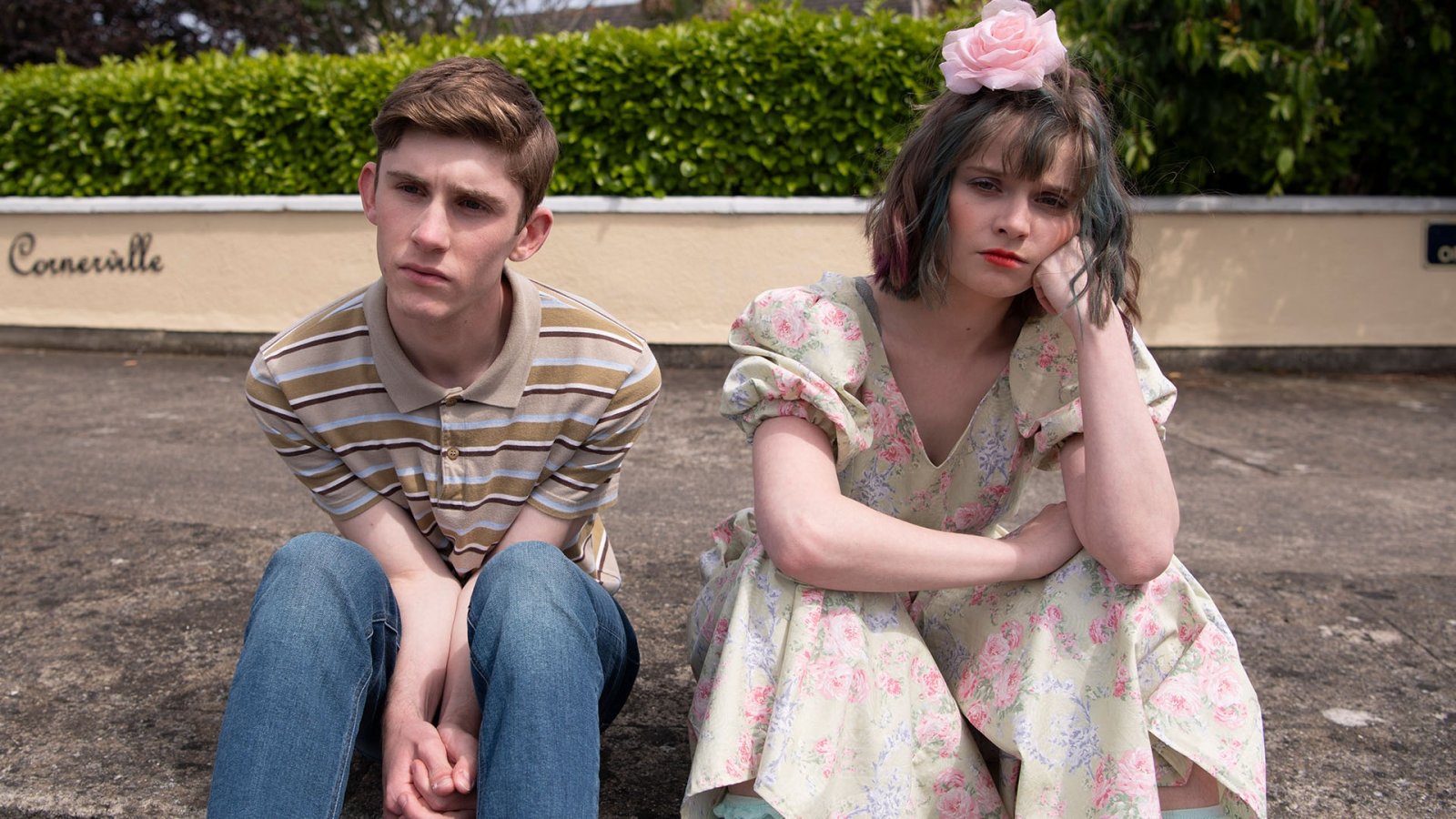Dating Amber
by Hope Madden
Awkward teens pretend to date each other to sidestep the school bullies, only to find a deep and genuine bond. That sounds pat enough, but writer/director David Freyne (The Cured) and a stunning cast have something far messier and human in mind.
Welcome to County Kildare in the mid Nineties. Divorce is still illegal, homosexuality a curse, the Irish army or the hair salon are the likeliest post-graduation vocations. As Amber (Lola Petticrew) says frequently, “This place will kill you.”
Amber should know. She found her father hanging in the forest near the trailer court where she rents out spots to horny teens, which she does to accrue enough dough to head to London the minute she graduates.
But to survive between now and then, she proposes the “let’s pretend we’re dating” con to Eddie (a remarkable Fionn O’Shea). Because Amber is gay. Gay gay gay. And so is Eddie.
No. No, he definitely is not gay. Not at all. But still…it isn’t a terrible idea.
So begins Freyne’s semi-satirical look at the perils of high school generally and sexual conformity specifically. There are delightful, early, broad-stroke comic moments that simply feel like a cheeky Irish upending of John Hughes tropes.
But that’s not Dating Amber. Not at all. The brightly familiar comedy trappings serve to lull you into a comfortable space so the film can unveil something beautifully untidy and really heartbreaking, something simultaneously devastating and resilient.
Freyne mixes darkness and forgiveness in equal measure. Everyone has their own shit to deal with, and an depressed small town full of frightened people lacking in any real opportunity or choice is bound to take its toll—on the gay kids, on the parents who probably don’t want to be married anymore, on the younger brother who just wants to feel like his family is normal, and on everyone facing graduation and whatever likely dismal future lies ahead.
But mainly, Freyne is interested in how Amber and Eddie contend with things. Luckily, Petticrew and O’Shea share a truly lovely chemistry, creating the kind of bond you long to see for every desperate and lonely teenager.
Their honesty gives every scene an extra punch—of laughter or heartbreak. Coming of age still looks like it seriously sucks, but Dating Amber is a keeper.


